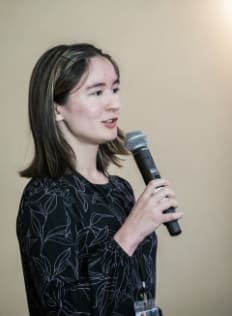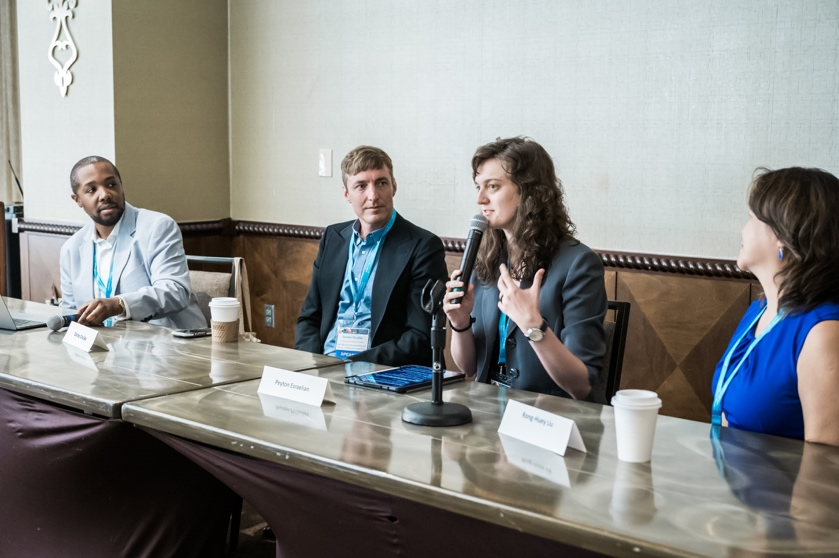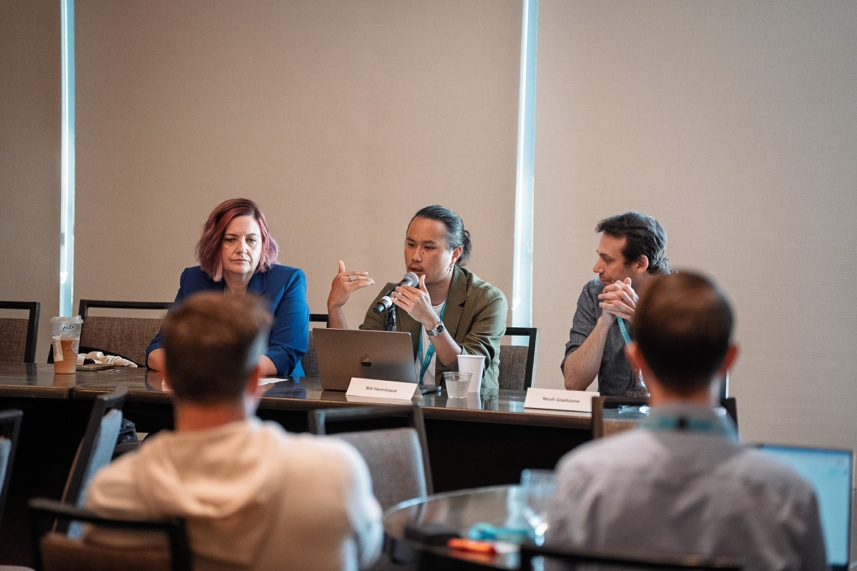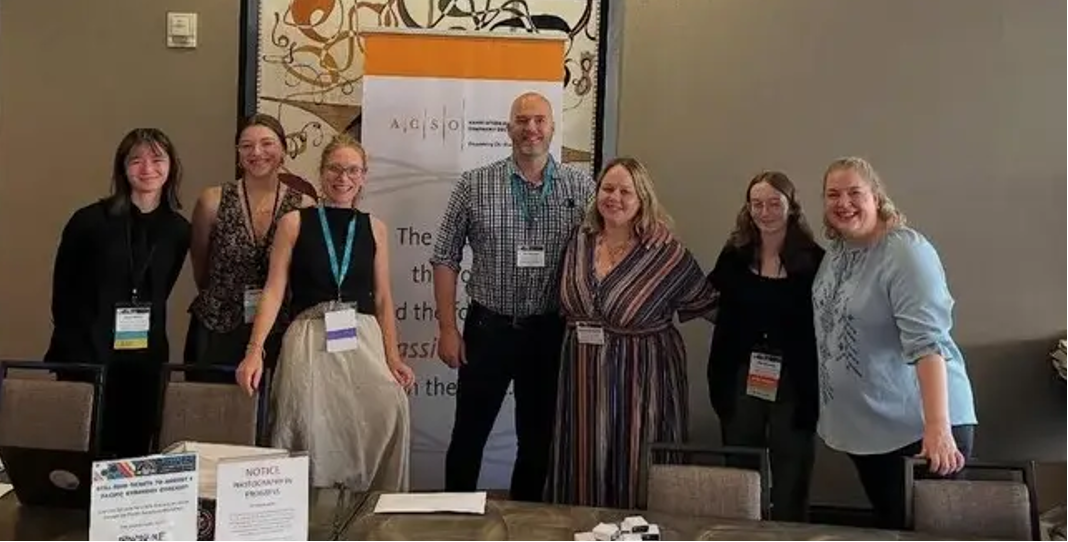
What I Learned at the ACSO 2025 Annual Conference
My thoughts on “The Conservatory’s Role in Shaping the Canon” and “Leveling Up: Orchestras and the Rise of Video Game Music”.
By Alicia Miller, ACSO Conference and Marketing Intern
 As a music student, ACSO's 2025 Annual Conference was a new and exciting experience. I was not previously aware of the sorts of resources and events that service organizations like ACSO provide for their members. I was also not aware of what attending a conference is really like. My only previous conference experience was playing at the Midwest Clinic with my youth orchestra in high school. That particular conference experience was focused almost entirely on finding my way through McCormick Place West to get to the stage on time!
As a music student, ACSO's 2025 Annual Conference was a new and exciting experience. I was not previously aware of the sorts of resources and events that service organizations like ACSO provide for their members. I was also not aware of what attending a conference is really like. My only previous conference experience was playing at the Midwest Clinic with my youth orchestra in high school. That particular conference experience was focused almost entirely on finding my way through McCormick Place West to get to the stage on time!I was impressed by the range of topics that were covered during the conference, many of which I was curious about. I ended up attending two sessions, which were: “The Conservatory’s Role in Shaping the Canon” and “Leveling Up: Orchestras and the Rise of Video Game Music.”
“The Conservatory’s Role in Shaping the Canon” was an interesting dialogue about how to balance teaching students the core repertoire they need to get a job in the orchestral world while also learning repertoire from newer and more diverse composers, which is something that they will also end up doing if they win a job. This means balancing the standard repertoire needed for auditions, which has largely stayed the same over the past 30 years, and teaching students the skills they need to keep a job, like ensemble playing, sight reading, and any extended skills they will need to tackle new works. In my personal experience, I have not had teachers who were averse to learning new repertoire, and I have never felt like I had to only practice repertoire for auditions. This is likely because, as a trombonist, a majority of our standard repertoire is modern music, so it was definitely a change for me to hear this perspective.

I particularly enjoyed hearing the student perspective amongst the faculty on the panel, as I feel like what students have to say is often ignored, even when they have valuable insights to offer. Peyton Esraelin (pictured here in the center) shared her experiences as a percussionist at Colburn and how she and her colleagues have had to learn a lot of new music on the job. This is a stark contrast to the constraints of the standard repertoire that they were learning in their studio and performing at school. The session made me wonder how students can advocate for having more resources dedicated to playing new repertoire from diverse composers, even for performances like student recitals, and how they should go about discussing the importance of these topics with faculty and staff.
“Leveling Up: Orchestras and the Rise of Video Game Music” was a compelling session for me because of my interest in games and my personal connection to video game music. My sister and I have played video games since we were little kids, and we both love video game soundtracks, especially Animal Crossing and The Legend of Zelda. My sister even picked up arranging video game music for orchestra. She has made a Final Fantasy arrangement and is currently working on a Legend of Zelda arrangement that I occasionally help her with, so the fact that the session discussed having composers create arrangements for indie/smaller games was personally applicable and seemed feasible to me. Further, Bill Hempstapat (pictured below in the center), Sr Interactive Music Designer at Riot Games, emphasized during the session that what we usually call “video game music” is just music that has been put in a game, and it has the same merits and complexity as other music, with the only difference being that it is the soundtrack for a game.

I also liked that the session made the idea of programming music from video games approachable for smaller orchestras, and the panelists emphasized the fact that video game fanbases value authenticity. This being said, I felt that some of the programming ideas presented as suitable for smaller orchestras had challenges that were not fully discussed. One suggestion was for orchestras to program music from ‘indie’ games, as collaboration with their composers is far more affordable. The fanbase of these niche games is also incredibly loyal and likely to attend a rare live performance of their music. Even as someone who plays games, I am personally not that well-versed in indie games, so I believe it would be difficult for the staff of a smaller orchestra to find an appropriate indie game, find someone to arrange music from the game, and then lastly advertise the concert to the fanbase of that particular indie game. Even with some background knowledge of gaming and indie game fanbases, such a concert would take a lot of effort to produce.
 It was super rewarding to see all the work that the ACSO team (pictured right) put into the annual conference pay off and finally get to see everything in action. I was surprised that such a small team was able to pull off a conference of this scale with so many moving parts. It was fun to be a part of the ACSO community. I found the conference to be an informative experience and a great introduction to what arts service organizations can do for their communities.
It was super rewarding to see all the work that the ACSO team (pictured right) put into the annual conference pay off and finally get to see everything in action. I was surprised that such a small team was able to pull off a conference of this scale with so many moving parts. It was fun to be a part of the ACSO community. I found the conference to be an informative experience and a great introduction to what arts service organizations can do for their communities.About the Author

Originally from Chicago, Alicia Miller is in her junior year at the USC Thornton School of Music as a performance major studying trombone. She is also a lead production assistant. In her free time, she loves to crochet and creates crochet tutorials.
Alicia was ACSO's summer 2025 Conference and Marketing Intern and her internship was generously supported by a grant from the Los Angeles County Department of Arts and Culture.
Powered By GrowthZone
